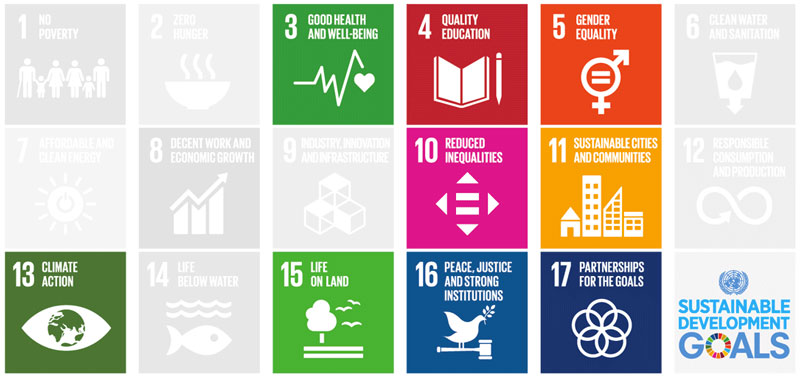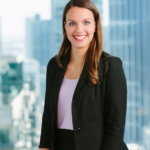Breakouts will be interactive, with participants encouraged to ask questions, provide links to relevant research and take part in polls.
Focus Areas
Circular Economy and Climate
Presented in partnership with the Department of Land, Water, Environment and Planning (DELWP)

Across Australia and around the world, governments are looking at ways to waste less and recycle more. Recycling Victoria: a new economy is Victoria’s circular economy policy and 10-year action plan to deliver a cleaner, greener State with less waste and pollution, better recycling, more jobs and a stronger economy. By 2046, Victoria is expected to produce 40% more waste than it did in 2017–18 unless action is taken now.
The most effective way to reduce pressure on waste and recycling systems, decrease landfill and cut greenhouse gas emissions is to work together, to share knowledge and experience, and to form partnerships to drive further action.
This session will explore the opportunity risks arising from climate action and the role the circular economy has to play across Food (SDG 2), Water (SDG 6), Energy (SDG 7), Infrastructure (SDG 9) and Waste (SDG 12). The discussion will explore how these systems can work together, and the partnerships (SDG 17) required to realise them.
The session will build on the Victorian Government’s ‘systems’ approach to adaptation planning, with a focus on laying the foundations for cross-sector partnerships and how we can unlock the commercial, legal and policy environment to enable those partnerships.
Session Host
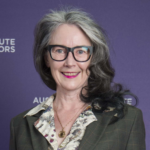 Susan McHattie, Executive, Norton Crumlin and Associates
Susan McHattie, Executive, Norton Crumlin and Associates
Susan works as an advisor and facilitator assisting clients in public, private, research and for purpose organisations to transition to a CIrcular Economy by setting goals and roadmaps, reviewing governance and creating partnerships, innovation and change. Susan’s prior governance experience includes elected roles in industry associations including the NSW Institute of Public Administration and the community cooperative, Reverse Garbage Truck. She has run programs and teams in NSW Government agencies and led the Inner Metropolitan Regional Organisation of Councils and Community Arts Marrickville. In 2021 Susan joined the National Board of UNAA as National Secretary.
Session Speakers
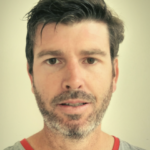 Michael O’Neill, Senior Manager, Strategic Projects, Partnerships and Sector Performance, DELWP
Michael O’Neill, Senior Manager, Strategic Projects, Partnerships and Sector Performance, DELWP
Michael is a Certified Environmental Practitioner who currently leads a team within DELWP where he is tasked with sharing Victoria’s expertise to create thriving, liveable cities and places with a particular focus on the state’s water management and governance frameworks. Michael has a degree in Sustainable Development from the University of Queensland and over a decade’s experience in the water, environmental, planning, policy and built environment sectors. Michael is currently leading the Victorian Government’s CivVic Labs challenge which is utilising Victoria’s start-up sector to measure Victoria’s liveability through the SDGs.
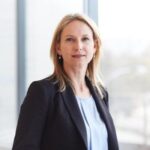
Ainsley Simpson, CEO, ISCA – Infrastructure Sustainability Council Australia
Ainsley fosters partnerships to advance sustainability; enabling industry to deliver infrastructure for our all communities. She has worked in an executive level at ASX listed organisations, with operational roles in the public sector. Her journey with ISCA has included the deployment and continuous development of IS Rating Scheme, as well as actively investing in building capacity in the ANZ infrastructure industry. Prior to migrating to Australia, she actively participated in multi-scale housing and civil infrastructure projects in Southern Africa. Project involvement spans environmental assessment and management for transport infrastructure as well as utilities, including transmission assets, water networks, waste facilities and telecommunications. With a keen interest in building capacity and accelerating approvals processes, she specialised in the development of local and state government decision-support tools for sustainable planning and management.
 Alicia Darvall, Director, Regions and Partnerships, Sustainability Victoria
Alicia Darvall, Director, Regions and Partnerships, Sustainability Victoria
Alicia is an innovative leader focused on building collaborative partnerships, bridging cultures, sectors, and worldviews. Prior to joining SV, Alicia worked for B Lab, a non-profit whose initiatives include the B Corp Certification, businesses that meet the highest standards of social and environmental performance. She was the Director of Global Partners, responsible for the expansion of B Corporations around the world. From 2017 until 2020 she was the Chair of Melbourne Metropolitan Development Advisory Panel and Chair of the Inner South East Partnership – Metropolitan Partnership. Alicia plays a key role in delivering the Recycling Victoria initiative and helping Victorians live sustainably by acting on climate change and using resources wisely. She is also leading SV’s work on the Circular Economy Business Innovation Centre (CEBIC). The CEBIC brings together industry, universities and councils to develop new technologies and collaborate on creative solutions to food waste challenges.
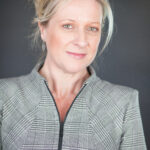 Brooke Donnelly, CEO, Australian Packaging Covenant Organisation
Brooke Donnelly, CEO, Australian Packaging Covenant Organisation
Brooke has spent her career working in product stewardship, collective impact, recycling and sustainability. As CEO of the Australian Packaging Covenant Organisation (APCO), Brooke leads APCO’s strategic direction to ensure effective collaboration between industry, government and consumers to drive significant positive environmental and circular economic activities for Australian communities.
Brooke is also co-founder of the Product Stewardship Alliance, a voluntary group working to accelerate Australia’s journey to a circular economy through product stewardship.
Sustainable Development Goals
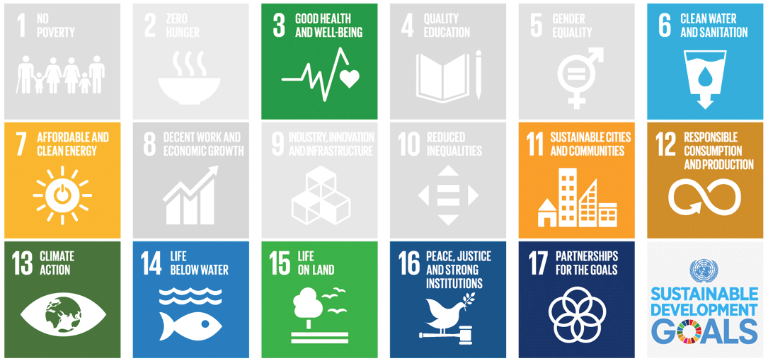
Economic Empowerment of Women and Girls
This session is presented in partnership with UN Women.
Economically empowering women and girls is key to achieving the 2030 Agenda for Sustainable Development. Women need to be able to participate equally in existing markets; have access to decent work and be meaningfully involved in economic decision-making at all levels. Girls across the world need to have access to quality education.
This session will focus on the partnerships needed to ensure we can assist in economically empowering women and girls in Australia and internationally. The highly impactful UN Women’s Markets for Change and Second Chance Education and Vocational Learning Programmes will be discussed as examples for future collaborations.
Session Host
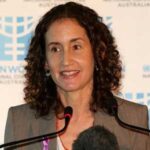 Janelle Weissman, Executive Director, UN Women Australia
Janelle Weissman, Executive Director, UN Women Australia
For the past twenty-five years, Janelle has worked to strengthen social justice organisations tackling issues from women’s empowerment through to supporting people with HIV/AIDS in the USA, Australia and around the world. As a fundraiser, grantmaker and program manager, she has nurtured countless partnerships across the private, philanthropic and NGO sectors to accelerate change for good.
Speakers
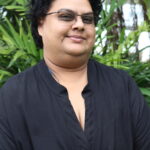 Preeya Ieli, Women’s Economic Empowerment Programme Specialist, UN Women Fiji Multi-Country Office
Preeya Ieli, Women’s Economic Empowerment Programme Specialist, UN Women Fiji Multi-Country Office
For the past seven years, Preeya Ieli has worked on Women’s economic empowerment issues across many Pacific Islands including Solomons and Vanuatu. Her passion is to work with women in the informal sector as she feels they are most neglected and have very few opportunities socially and economically. Prior to joining UN Women, Preeya worked as the Regional Climate Change Manager for UN Habitat after 17 years working in Local Government. Preeya has a Master’s in Business Administration and a Diploma in Applied Computing from the University of the South Pacific.
 Brodie Vansleve, Program Director, Global Education Equity & North America, BHP Foundation
Brodie Vansleve, Program Director, Global Education Equity & North America, BHP Foundation
Brodie leads the development and implementation of strategies for the Global Education Equity Signature Program and Country Programs for the United States of America and Canada. With a diverse background gained through roles within Health, Safety, Environment and Community (HSEC), Finance, Corporate Affairs and most recently Sustainability and Public Policy, Brodie’s experience offers a unique blend of commercial, social policy and community development expertise.
The BHP Foundation partners with UN Women to deliver the Second Chance Education and Vocational Learning Programme.
Sustainable Development Goals
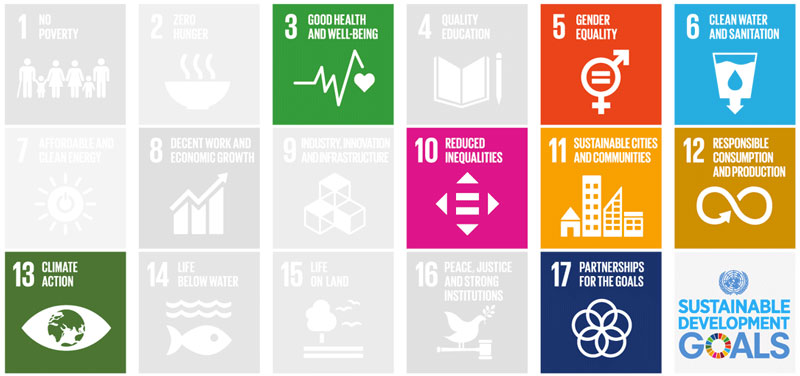
Sustainable Finance
This session is being presented in partnership with SDGx 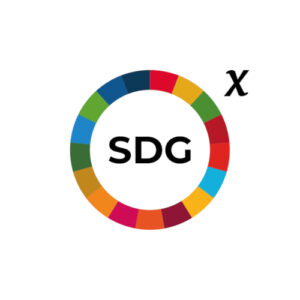
The SDGs provide a globally recognized benchmark for sustainable development and a framework which can help to deliver long term financial returns for investments. But what approaches, tools, and partnerships will ensure that the SDG agenda ensures sustainable finance and responsible investment?
Outcomes of this session will be identifying various approaches investors are taking to addressing the SDGs in their portfolios and identifying partnerships that can help further the SDGs.
Useful Resource
UN Principles for Responsible Investment Environmental, social and governance issues
Australian Sustainable Finance Initiative Roadmap
Session Host
Sandra Silea, Senior Analyst, ESG and Stewardship, AustralianSuper
Sandra works in AustralianSuper’s Investments team to integrate ESG considerations into their investment process. In this role, she engages with listed company boards on ESG matters, actively votes at company meetings and conducts ESG due diligence for listed investments.
Sandra is also the AustralianSuper representative on the Steering Committee of Investors Against Slavery and Trafficking APAC, the Cleaning Accountability Framework, and is a member of the RIAA Human Rights Working Group.Speakers
Simon O’Connor, CEO, Responsible Investment Association Australasia (RIAA)
Simon is the CEO of RIAA – an organisation with over 240 organisations and individual members who jointly manage over $9 trillion in assets globally – where he has worked for the past 6 years to elevate sustainability issues as core investment risks and opportunities, and shift capital to support a more sustainable, equitable and prosperous world. Simon has operated at the intersection of economics, finance and sustainability for nearly 20 years and has extensive international experience as an economic adviser, investment analyst and sustainability consultant across finance, corporate and not for profit sectors. Simon is active across the region and internationally in responsible investment and sustainable finance, as a member of the Global Sustainable Investment Alliance, member of the New Zealand Sustainable Finance Forum’s Technical Working Group, member of the Aotearoa New Zealand National Advisory Board on Impact Investing and the UN backed Principles for Responsible Investment (PRI) Australia Network Advisory Committee.
Alison Chan, Director, Sustainable Finance, NAB
Alison joined NAB in 2019, bringing to NAB’s Sustainable Finance team an extensive background in structuring, risk assessment and execution of innovative transactions in the capital and bank lending markets across multiple jurisdictions. She has worked closely with NAB colleagues in Australia, NZ, UK, USA and Asia to help issuers of sustainable debt align their issuances with international best practice. Alison pursues her keen interest in transition finance as a member of ICMA’s Climate Transition Finance Working Group.
Alison started her career as a banking and finance lawyer with King Wood Mallesons in Sydney and spent 12 years with Clifford Chance in London before bringing her passion for sustainability and ethical practice to banking. Alison is a senior advisor to Climate Bonds Initiative, a well-respected NGO focussed on mobilising the global bond market for climate change solutions.
Sustainable Development Goals
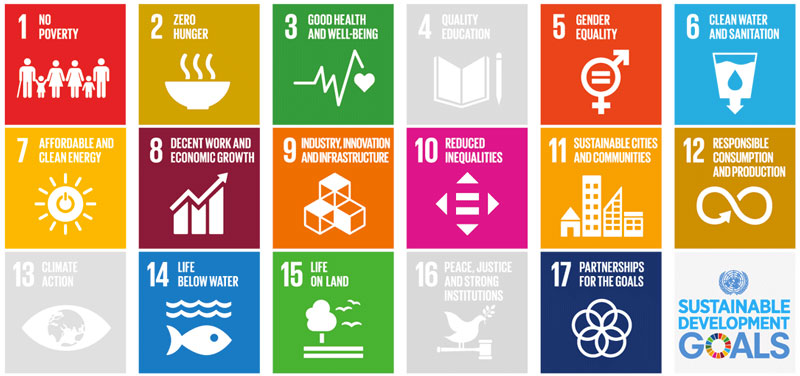
Driving sustainable reconciliation efforts through an Indigenous rights lens
This session is being presented in partnership with PwC Indigenous Consulting.
Globally, businesses are responding to the needs of a broader set of stakeholders beyond shareholders, and are seeking to demonstrate leadership in workplace relations, sustainability, ethical impact and in other environmental, social and governance (ESG) issues.
In Australia, a growing number of businesses have a Reconciliation Action Plan in place, which has become an effective tool in building relationships, respect and opportunities between businesses and Australia’s First Peoples. This is welcome progress, however structural inequalities and inequities continue to impact the lives of Australia’s First Peoples.
Join this session to further explore the equitable solutions and partnership opportunities, which are fit for the future and underpinned by the unique collective rights and norms outlined within the United Nations Declaration on the Rights of Indigenous Peoples. There is a clear role for the business sector to play to drive sustainable reconciliation efforts through an Indigenous rights lens, which will bring opportunity and change to First Nations Peoples and the businesses that co-lead them
Session Host
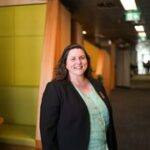 Dr Michelle Evans
Dr Michelle Evans
Associate Professor in Leadership, University of Melbourne
Dr Evans specialises in the areas of Indigenous leadership and entrepreneurship and is also Co-Founder and Program Director of the award winning MURRA Indigenous Business Masterclass Program, based at the Melbourne Business School. Prior to academia, Dr Evans was Founder of the Wilin Centre for Indigenous Arts and Cultural Development at the Victorian College of Arts. She has been consulted by the Department of Prime Minister and Cabinet, OECD and other public institutions as well as leading Australian organisations in development of their Reconciliation Action Plans.
Speakers
 Amber Roberts, Senior Manager, PwC’s Indigenous Consulting
Amber Roberts, Senior Manager, PwC’s Indigenous Consulting
Amber has extensive experience working in the areas of native title law, Indigenous sentencing courts, human rights law and advocacy, Indigenous health equality, reconciliation and workplace diversity.
She has provided strategic advice to senior executives and board members of some of the largest organisations in Australia and globally to develop shared value partnerships and change strategies, embedding frameworks such as Reconciliation Action Plans, which commits organisations to build respectful relationships and improve opportunities for Aboriginal and Torres Strait Islander Australians.
Amber has presented at the United Nations Permanent Forum on Indigenous Issues in New York and actively applies an intergenerational human rights lens based approach that supports giving meaningful effect to the United Nations Declaration on the Rights of Indigenous Peoples.
 Tanya Hosch, General Manager, Inclusion and Social Policy, AFL, UNAA Goodwill Ambassador for Indigenous Issues
Tanya Hosch, General Manager, Inclusion and Social Policy, AFL, UNAA Goodwill Ambassador for Indigenous Issues
Tanya has a long and distinguished history in Aboriginal and Torres Strait Islander policy, advocacy, governance and fundraising. Before joining the AFL as the first ever Indigenous person and the second woman in its Executive ranks in August 2016, Tanya was the Joint Campaign director of the Recognise movement for constitutional recognition. Tanya is tasked with the implementation of the AFL’s enhanced Indigenous strategy, advising the AFL Aboriginal and Torres Strait Islander Advisory Council, maintenance of the Respect and Responsibility Policy, 2017, the AFL’s Gender Action Plan and the Gender Diversity Policy.
Sustainable Development Goals
